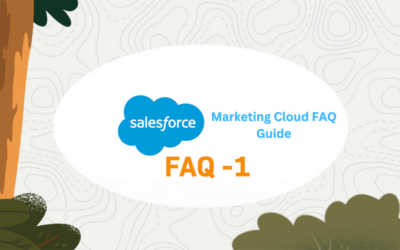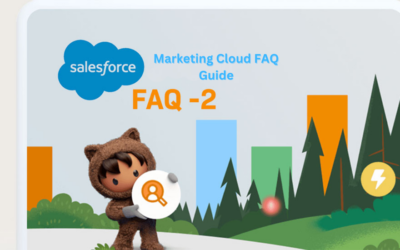In today’s dynamic business landscape, where customer relationships play a pivotal role in success, the choice of a Customer Relationship Management (CRM) platform can be a make-or-break decision for organizations of all sizes. Among the array of options, two standout contenders, HubSpot and Agile CRM, have garnered attention for their distinct approaches to addressing the multifaceted needs of modern businesses. This comprehensive comparison aims to unravel the layers of both platforms, offering a detailed exploration of their features, strengths, and weaknesses. As we embark on this journey, we’ll dissect HubSpot’s reputation as an all-in-one marketing, sales, and service powerhouse, known for its user-friendly interface and comprehensive suite of tools. Concurrently, we’ll delve into Agile CRM’s identity as a dynamic alternative, emphasizing its flexibility, customization capabilities, and a focus on contact management, sales enablement, and marketing automation.
In an era where businesses are not only seeking efficiency in their operations but also a personalized touch in customer interactions, the choice between HubSpot and Agile CRM is more than a software decision; it’s a strategic move that shapes how a company engages with its audience. From lead generation and conversion to ongoing customer support, both platforms have distinct offerings, and this comparison serves as a roadmap for businesses navigating the intricate terrain of CRM solutions. Whether you’re a marketing maven, a sales strategist, or a service-oriented professional, the chapters that follow will unfold the intricacies of HubSpot and Agile CRM, providing insights that empower businesses to make informed decisions tailored to their unique objectives and aspirations. If you need assistance with Salesforce CRM setup and optimization, companies like CRM Force can provide valuable expertise and support.
1- Unveiling HubSpot’s Powerhouse
Overview of HubSpot:
HubSpot has emerged as a trailblazer in the realm of Customer Relationship Management (CRM), offering an integrated platform that encompasses marketing, sales, and service functionalities. At its core, HubSpot aims to empower businesses to attract, engage, and delight their customers throughout the entire customer lifecycle.
HubSpot’s Marketing Hub:
The cornerstone of HubSpot’s comprehensive suite is the Marketing Hub. This feature-packed module equips businesses with the tools they need to create a robust online presence, attract leads, and execute targeted marketing campaigns. From content creation to social media management and email marketing, the Marketing Hub is designed to facilitate seamless and effective marketing strategies.
Within the Marketing Hub, businesses can leverage features like content management, blogging, and SEO optimization to enhance their online visibility. The automation capabilities streamline repetitive tasks, enabling marketing teams to focus on strategic initiatives. Furthermore, detailed analytics provide insights into campaign performance, allowing businesses to refine their strategies based on data-driven decisions.
Sales Hub:
Transitioning from marketing to sales, HubSpot’s Sales Hub is engineered to accelerate the sales process. Contact and deal management functionalities ensure that sales teams have a comprehensive view of their interactions with leads and customers. The platform incorporates email tracking and automation, facilitating personalized and timely communication with prospects.
Sales analytics within the Sales Hub provide valuable insights into the sales pipeline, allowing businesses to identify opportunities for improvement and optimize their sales strategies. Integration with customer communication channels ensures that sales teams can engage with leads across various touchpoints, fostering stronger relationships.
Service Hub:
Completing the triumvirate, HubSpot’s Service Hub is dedicated to elevating customer support and satisfaction. With ticketing systems, knowledge base creation, and customer feedback tools, businesses can streamline their customer service processes and deliver exceptional support experiences.
The Service Hub is designed to help businesses manage customer inquiries efficiently, reducing response times and enhancing overall satisfaction. Knowledge base creation enables the development of self-service resources, empowering customers to find answers independently. Additionally, feedback tools allow businesses to gather insights directly from customers, providing a valuable feedback loop for continuous improvement.
2- Agile CRM – A Dynamic Alternative
Introduction to Agile CRM:
Agile CRM stands out as a dynamic alternative in the competitive CRM landscape, placing a strong emphasis on flexibility and customization. This chapter will delve into the core features of Agile CRM, highlighting its unique selling points and showcasing how it caters to the diverse needs of businesses.
Contact Management and Automation:
At the heart of Agile CRM is its robust contact management system. This system is designed to provide businesses with a 360-degree view of their contacts, allowing for detailed segmentation based on various criteria. Agile CRM’s contact management goes beyond basic information, incorporating social media profiles, communication history, and engagement patterns, enabling businesses to tailor their interactions with precision.
Automation is a cornerstone of Agile CRM, streamlining repetitive tasks and ensuring that workflows remain efficient. From automated follow-up emails to task assignments based on predefined triggers, businesses can automate key aspects of their customer interactions, reducing manual efforts and minimizing the risk of oversights.
Sales Enablement:
Agile CRM’s focus on sales enablement is evident in its comprehensive set of features aimed at optimizing the sales process. Deal tracking allows sales teams to monitor the progress of deals through various stages, providing transparency and accountability. Email tracking ensures that sales representatives stay informed about prospect engagement, enabling them to time their follow-ups effectively.
The telephony feature in Agile CRM is a standout offering, integrating communication directly into the platform. This facilitates seamless interactions with leads and customers, eliminating the need for external communication tools. With Agile CRM’s sales-centric features, businesses can create a streamlined and efficient sales pipeline.
Marketing Automation in Agile CRM:
Agile CRM’s marketing automation capabilities are tailored to enhance customer engagement. The platform supports the creation and execution of targeted marketing campaigns through features like email automation, lead scoring, and personalized content delivery.
Email automation allows businesses to nurture leads with personalized and timely communication. Lead scoring helps prioritize leads based on their engagement and readiness to make a purchase. Agile CRM’s marketing automation tools enable businesses to deliver the right message to the right audience at the right time, increasing the likelihood of conversion.
3- Head-to-Head Comparison
User Interface and Ease of Use:
The user interface (UI) and ease of use are critical factors in the adoption and effective utilization of CRM platforms. HubSpot and Agile CRM differ in their design philosophies. HubSpot boasts a clean and intuitive UI, making it accessible for users across different experience levels. Its dashboard design ensures that key features are easily navigable, enhancing user efficiency. On the other hand, Agile CRM offers a customizable dashboard, allowing users to tailor their workspace based on individual preferences. While both platforms prioritize user experience, the choice between them may depend on the specific preferences and requirements of the organization.
Integration Capabilities:
The ability of a CRM system to integrate seamlessly with other tools and applications is paramount for a holistic business environment. HubSpot and Agile CRM both offer integration capabilities, but the extent and ease of integration vary. HubSpot has a vast marketplace with a wide array of integrations for marketing, sales, and service needs. Agile CRM, while also supporting essential integrations, may require more customization for specific business requirements. Businesses should evaluate the specific integrations they need and assess the availability and compatibility on both platforms.
Scalability and Pricing:
Scalability is crucial for businesses anticipating growth. HubSpot and Agile CRM approach scalability differently. HubSpot offers tiered pricing plans based on the specific needs of businesses, with features scaling accordingly. This allows businesses to upgrade their plans as they expand. Agile CRM, known for its flexibility, also provides scalable solutions, allowing businesses to add features as needed. The pricing models of both platforms vary, and businesses must carefully consider their current and future needs to determine the most cost-effective solution.
Customer Support and Training:
Effective customer support and comprehensive training resources contribute significantly to the successful implementation and use of CRM platforms. HubSpot is renowned for its extensive knowledge base, online courses, and responsive customer support. It offers a variety of resources, including webinars and community forums, ensuring that users have access to the assistance they need. Agile CRM also provides customer support through various channels, but the level of responsiveness may differ. Businesses should consider their reliance on support and training resources when evaluating both platforms.
4- Making the Decision: HubSpot or Agile CRM?
Use Cases and Industry Fit:
Every business is unique, and the choice between HubSpot and Agile CRM should align with specific use cases and industry requirements. HubSpot, with its integrated marketing, sales, and service hubs, is well-suited for businesses seeking an all-in-one solution. It’s particularly advantageous for organizations looking to consolidate their customer-related activities into a single platform. On the other hand, Agile CRM’s flexibility and customization make it an excellent choice for businesses with diverse needs and those looking for a solution they can tailor to their specific workflows. Analyzing use cases and industry fit ensures that the chosen CRM aligns seamlessly with the business’s operational requirements.
Customer Testimonials and Case Studies:
Real-world success stories provide invaluable insights into the practical benefits of CRM platforms. HubSpot has a vast collection of customer testimonials and case studies, showcasing how businesses across various industries have leveraged its features to achieve success. These stories highlight the impact of HubSpot’s marketing, sales, and service functionalities on improving customer relationships, streamlining processes, and driving growth. Agile CRM, while not as extensively documented, also features success stories that emphasize its adaptability and effectiveness in meeting unique business challenges. Businesses should carefully review these testimonials and case studies to gauge the platforms’ applicability to their specific goals and objectives.
Future Developments and Roadmaps:
The commitment of CRM providers to ongoing development and innovation is crucial for businesses looking for a long-term solution. HubSpot consistently updates its platform, introducing new features and improvements. The company maintains transparency through its product roadmap, giving users insights into upcoming developments. Agile CRM, too, focuses on continuous improvement, often releasing updates based on user feedback. Examining the future developments and roadmaps of both platforms allows businesses to assess the long-term viability and alignment of each CRM solution with their evolving needs. This forward-looking perspective is essential for making a strategic CRM investment.
5- Agile CRM Alternatives: Finding the Perfect Fit
Introduction:
While HubSpot and Agile CRM are robust solutions, businesses may find that their specific needs align better with alternative CRM options. In this chapter, we’ll explore alternative CRM solutions, considering various factors such as customization, scalability, and feature offerings. By providing insights into these alternatives, businesses can make a well-informed decision that caters to their unique requirements.
Considerations for Agile CRM Alternatives:
Before delving into specific alternatives, it’s crucial to outline the considerations that businesses should keep in mind when seeking an alternative to Agile CRM. These considerations may include the level of customization required, scalability for future growth, integration capabilities with existing tools, and the specific features essential for the organization’s operations. By clearly defining these considerations, businesses can narrow down their search for the perfect Agile CRM alternative.
Top Agile CRM Alternatives:
Zoho CRM:
Strengths: Zoho CRM is known for its versatility and customizable features, offering a user-friendly interface and strong integration capabilities.
Scalability: Zoho CRM provides scalable solutions suitable for businesses of all sizes, with a range of plans catering to diverse needs.
Use Cases: Zoho CRM is suitable for a variety of industries, particularly businesses looking for a flexible and cost-effective CRM solution.
Salesforce:
Strengths: Salesforce is a leader in the CRM space, offering extensive customization, a vast app marketplace, and powerful analytics.
Scalability: Salesforce is highly scalable, making it suitable for businesses with varying sizes and evolving needs.
Use Cases: Salesforce is widely adopted across industries, with a strong focus on enterprise-level solutions for complex business processes.
Pipedrive:
Strengths: Pipedrive excels in its simplicity and focus on sales pipeline management, making it an ideal choice for sales-centric organizations.
Scalability: Pipedrive is scalable and caters to businesses ranging from small startups to larger enterprises.
Use Cases: Pipedrive is particularly well-suited for sales teams looking for an intuitive and effective solution to manage their sales processes.
Freshsales:
Strengths: Freshsales is known for its ease of use, AI-driven lead scoring, and comprehensive sales automation features.
Scalability: Freshsales offers scalable plans suitable for businesses looking to grow and expand their CRM capabilities.
Use Cases: Freshsales is recommended for businesses seeking a user-friendly CRM with strong sales automation features.
Conclusion
In conclusion, the journey through the comparison of HubSpot and Agile CRM has provided a comprehensive understanding of two formidable players in the CRM landscape. HubSpot’s versatility, marked by its all-encompassing Marketing, Sales, and Service Hubs, has solidified its position as a user-friendly powerhouse capable of meeting diverse business needs. Meanwhile, Agile CRM has stood out as a dynamic alternative, boasting a flexible and customizable approach that resonates with businesses seeking tailored solutions for contact management, sales enablement, and marketing automation. Both platforms offer distinct advantages, and the choice between them hinges on the unique requirements and preferences of the organizations they aim to serve.
For businesses seeking an Agile CRM alternative, the decision-making process extends beyond a binary choice. It involves a meticulous consideration of factors such as customization, scalability, and unique feature offerings. This comparison has not only shed light on HubSpot and Agile CRM but also introduced alternative CRM solutions like Zoho CRM, Salesforce, Pipedrive, and Freshsales. Each of these alternatives brings its own set of strengths and use cases, providing businesses with a diversified palette of options. The quest for the ideal CRM solution is a nuanced journey, and as organizations navigate the evolving landscape of customer relationship management, the pursuit of an Agile CRM alternative may lead to a tailored, strategic choice that aligns seamlessly with their distinct operational dynamics and growth trajectories. To learn more about how CRM Force can assist you in recruiting top CRM talent and optimizing your CRM strategies for successful drip campaigns, contact us today. Together, let’s maximize your customer engagement Contact Us today.





